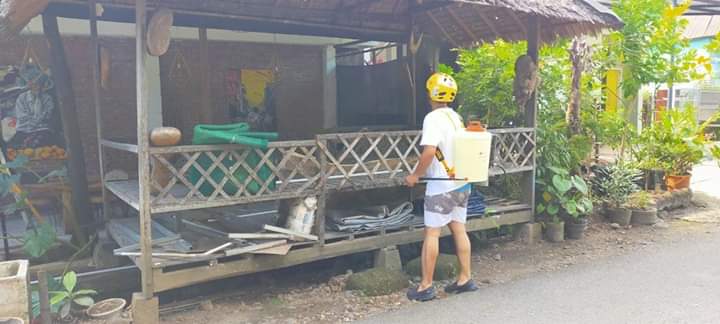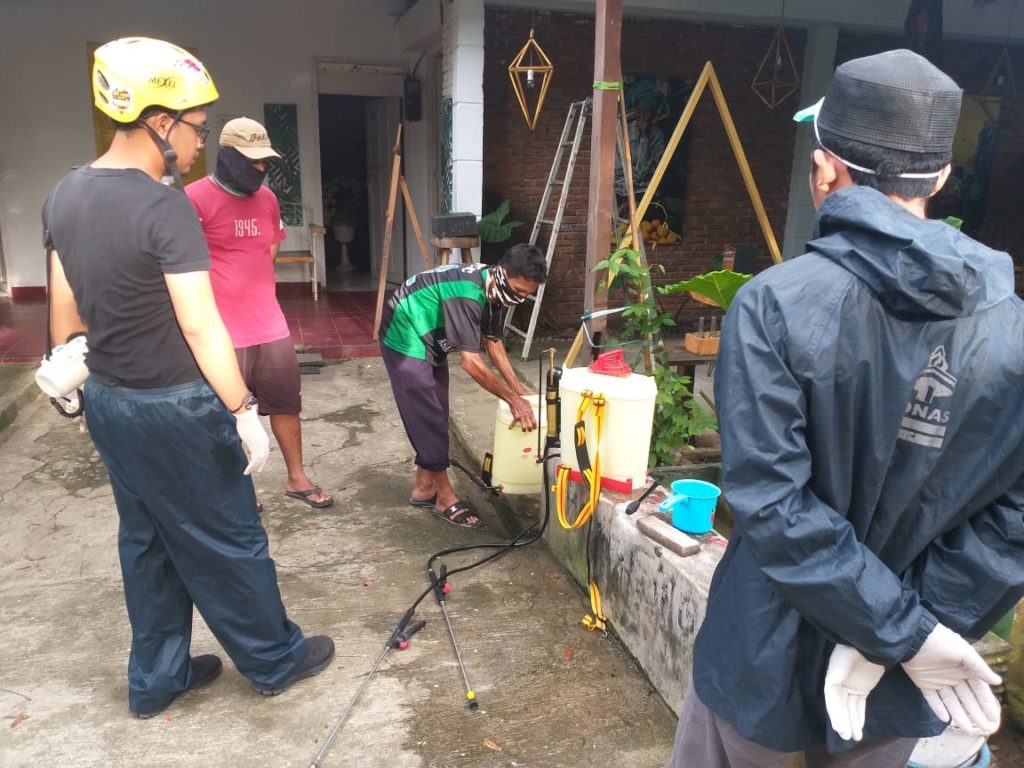Indonesia’s response to Covid-19
The impact of the Covid-19 pandemic is being felt in the provinces of Indonesia that the EYW project operates in, affecting the day-to-day program and activities. In South Sulawesi, the youth, partners, and local government are taking measures to prevent transmission while also adapting to these new circumstances by carrying out some activities remotely.
How EYW partners are taking preventive measures
When the number of positive cases first increased in Indonesia, EYW partner ASPPUK (Asosiasi Pendamping Perempuan Usaha Kecil Mikro or Micro Small Business Assistance Association) made various efforts to prevent the spread of the virus while also considering the scheduled program. For this reason, all face-to-face activities including meetings in the office and between beneficiaries will not be carried out until there is information from the government regarding improved conditions.
Fortunately, some activities that can be done remotely are still being conducted through online media platforms. One of these activities is the selection process for a youth-led business plan or business idea. The mentors interviewed the young people located in six different districts by telephone or video call. After making the selection, the mentoring and bootcamp process that usually follows will be altered. While the mentoring process will be carried out using online platforms such as Zoom or Google Meet, the bootcamp will have to be postponed until conditions improve. All other forms of coordination, both at ASPPUK Jakarta and in the field, are being carried out online.
Indecon (Indonesia Ecotourism Network) works in several locations within South Sulawesi. Since early March, the EYW partner has tackled the transmission of Covid-19 by asking staff to work from home and send health updates. In addition, meetings with local communities in the field were postponed. If possible, they are being replaced by online meetings via video conferencing. One of them is with the youth community in Madello Village, Barru, which plans to discuss the continued formation of the Madello Village Tourism Awareness Group.

Community responses to the outbreak
In Barru district, both the local government and community have been responsive in containing the outbreak. Among them is the Bagis Rock Label coffee shop, one of the EYW beneficiaries. Since the first week of information about positive cases of Covid-19 in South Sulawesi, the owners decided to close the store and only accept orders via delivery or online. Another local business, the Asoka Creative Hub, is carrying out regular cleaning activities together with young people. They conducted several rounds of disinfectant spraying in busy areas of their community. Donations at Asoka are going towards materials for homemade disinfectant.
To support the government, some community groups also took the initiative of collecting donations for health workers and vulnerable groups. For instance, the Cahaya Desa group distributes facemasks and hand washing soap free of charge to the community, especially to the elderly in Ma'rang District, Pitue Village. Likewise, Kurir Langit, who are engaged in social affairs, collected donations in the form of medical clothing, masks, soap, hand sanitizer, gloves, disinfectants, spray tanks, and more. They also helped establish Covid-19 emergency posts in the city of Makassar.

Local government responses
In addition to measures taken by the central government and community, the local government in Sulawesi is taking additional steps to prevent transmission. In Kendari City, the government has closed public spaces such as markets and conducted raids at locations that can increase transmission. A campaign has also been carried out by the regional government with various efforts and media platforms so that the public is more aware of the dangers of this virus. To complement this, many efforts to encourage social distancing have been made.
In Pangkep regency, the local government is using cars with mobile speakers in crowded places to spread information every morning and evening. In addition, there has been routine spraying with disinfectants in public places such as major roads, ATMs and hospitals. In response to the measures, supermarkets, banks and shopping centers are providing hands-free services, and minimarkets and ATMs have also been providing handwashing areas with soap and water or hand sanitizer.
